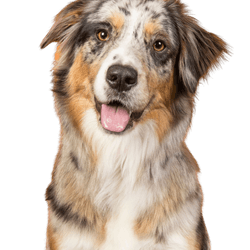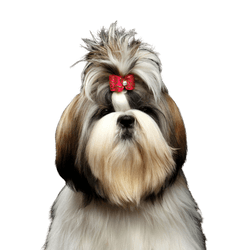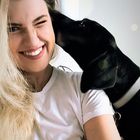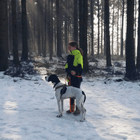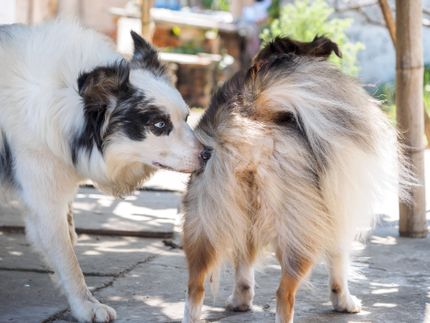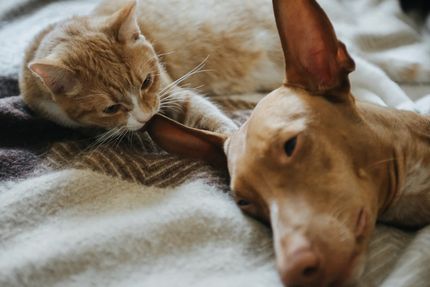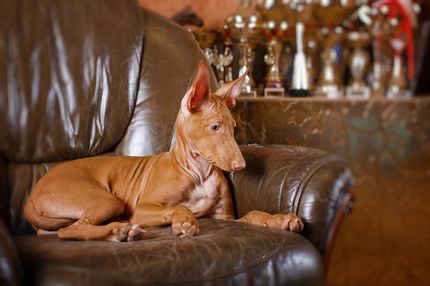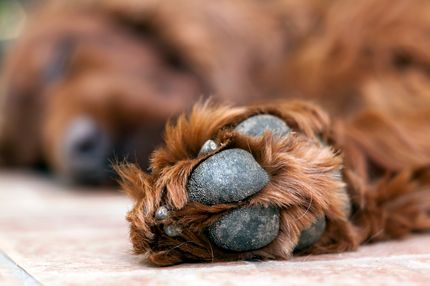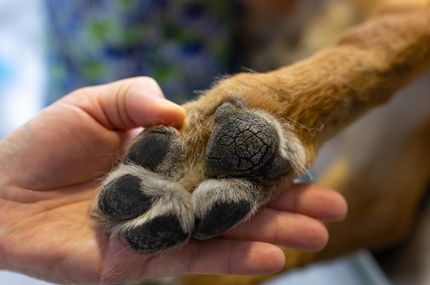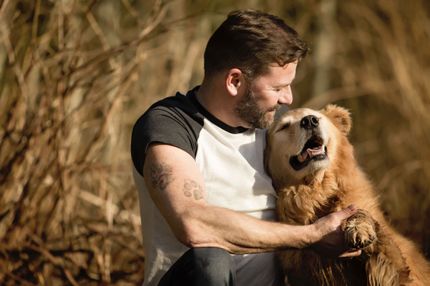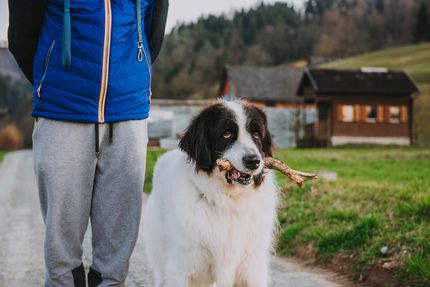Facts & Origin
Origin and History of the Standard Auss-Tzu
The Standard Auss-Tzu, also known as the Australian Shepherd and Shih Tzu mix , is a blend of the energetic Australian Shepherd and the personable Shih Tzu.
The Australian Shepherd has its roots in the United States, despite its misleading name, and is known for its work ethic and intelligence. The Shih Tzu is a very old dog from China, bred primarily as a companion and lap dog.
Suitability and attitude
The Standard Auss-Tzu is an active and loyal dog that is suitable as both a family and working dog. Due to its energy level, this dog requires daily exercise and mental stimulation to stay happy and healthy. He is intelligent and easy to train, but also needs a firm and consistent hand. Thanks to the Shih Tzu's loving and affectionate nature, the Auss-Tzu is very attached to his family and loves children. But he also shows himself compatible with other pets.
| Alternate Name | - |
| Origin | USA - Tibet |
| Life expectancy | 10 - 16 years |
| Care requirements | high-maintenance |
| Activity level | high - low |
| FCI group | not recognised |
| AKC group | not recognised |
| KC group | not recognised |
More Australian Shepherd mixes
More Shih Tzu mixes
Attitude, character and temperament of the breed
Character traits of the Standard Auss-Tzu
The Australian Shepherd is known for its intelligence and trainability, while the Shih Tzu is loved for its friendly, mortgage-free nature. Combine these traits and you have a lively, intelligent and affectionate mixed breed dog - the Standard Auss-Tzu.
- Affectionate and loyal: The Standard Auss-Tzu is strongly attached to family and loves human companionship.
- Energetic and Playful: This mixed breed dog has lots of energy and needs regular exercise.
- Intelligent and eager to learn: thanks to the Australian Shepherd's intelligence, this dog is eager to learn and enjoys mental stimulation.
Nature and temperament
This mixed breed is known for its friendly nature. Although it often inherits the energetic temperament of the Australian Shepherd, it also balances the calm and composed nature of the Shih Tzu. This makes him a well-balanced family dog, suitable for both active play and relaxed cuddle time.
Character
Grooming the Standard Auss-Tzu
Grooming for the Australian Shepherd Shih Tzu mix can be intense, as both parent breeds tend to groom regularly. Their coats can be long and thick or short and dense, depending on which parental trait is more prominent. They should be brushed at least once a week to prevent matting. In addition, regular baths are necessary to keep their coats clean and free of odors.
Health and Diseases
Regarding the health of the Standard Auss-Tzu, it should be noted that they can inherit a mixture of health problems from their parent breeds. Regular veterinary examination is essential to detect and treat potential health issues early. Potential health issues may include hip dysplasia, eye disease, and allergies . It is important that this mix be fed a species appropriate diet to avoid obesity and associated health issues.
Breeding the Standard Auss-Tzu
Breeding a Standard Auss-Tzu should always be done byresponsible and reputable breeders. It is of utmost importance that breeders perform health examinations and tests onboth parent breeds to ensure that no hereditary diseases are passed on.
What does this mixed breed look like?
Each Standard Auss-Tzu can have a unique blend of characteristics from its parent breeds . Generally, however, these dogs are medium in size, although weight may vary depending on the dominant parent breed. They have a medium-length, dense coat texture and can take on a variety of colors. Many Auss-Tzus also have the blue or brown eyes of the Australian Shepherd.
| Fur length | long - medium |
| Fur | flat coated |
| Ear shape | Standing Ears - Floppy Ear |
| Tail | fanned out - rolled up |
| Anatomy | sporty, rugged |
| Size ♀ | 20 - 54 cm |
| Weight ♀ | 4 - 32 kg |
| Size ♂ | 20 - 58 cm |
| Weight ♂ | 4 - 32 kg |
| Suitable For | - |
Known Diseases
Hip dysplasia (HD)
Hip dysplasia (HD) is a genetic condition in dogs where the hip joint is not shaped properly. This leads to pain, stiffness and restricted movement.
Elbow dysplasia (ED)
Elbow joint dysplasia is a chronic disease complex of the elbow joint of fast growing dog breeds.
MDR1 defect
The MDR1 defect is a defect in the MDR1 gene that can occur in some breeds of dogs and in humans. This results in the deficient or absent synthesis of a certain protein which is an important component of the blood-brain barrier, leading to hypersensitivity to some drugs.
Progressive Retinal Atrophy (PRA)
Progressive retinal atrophy (PRA) is a slowly progressive death of the retina in dogs.
Numbness
Often occurs in old age.
Eye infections
Chronic eye infections can be very painful in dogs and can be treated with medication. In rare cases, the cornea must be treated.
Breathing problems
Dogs with shortened muzzles can often experience respiratory problems.
Patellar luxation
Patellar luxation is the term used to describe a displacement of the kneecap, which is one of the most common causes of lameness in dogs.
Knee injuries
Some breeds, unfortunately, especially suffer from knee injuries of various kinds.
FAQ
-
The standard Auss-Tzu usually has a life expectancy of 12-15 years.
-
The Standard Auss-Tzu requires good regular grooming to keep his dense double coat healthy.
-
Yes, a standard Auss-Tzu is trainable and can be housetrained.
-
Yes, he is known as a family dog and is usually very affectionate and friendly with children.
